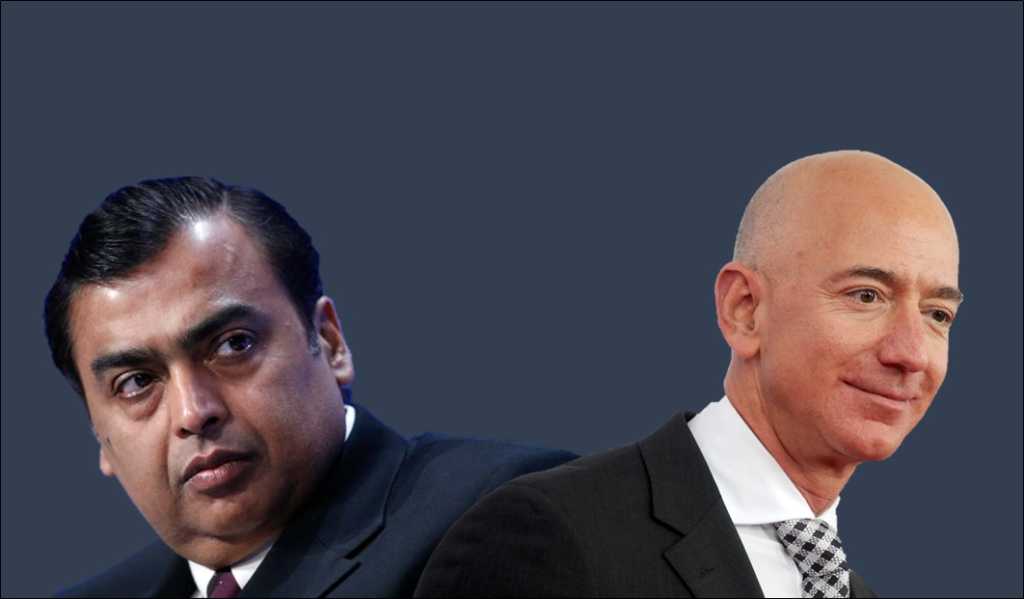Jeff Bezos recently became the first person to touch 150 billion dollars benchmark of personal wealth in modern history, without adjusting to inflation. His venture Amazon, started in 1994, has revolutionized the shopping experience in western countries. A few years back, the company entered the Indian market and has grown exponentially since then, giving tough competition to the domestic players like Flipkart and Snapdeal. The e-commerce ventures across the world like Alibaba in China, B2W in Brazil were inspired by the Amazon. The Flipkart in India was started by two ex-Amazon employees. Amazon surpassed Walmart as the most valuable retailer in the United States by market capitalization. Amazon is the fourth most valuable public company in the world (behind only Apple, Alphabet, and Microsoft) and the largest Internet company by revenue in the world.
The markets across the world no longer present great growth opportunities because they are moving towards saturation. So, the next big thing lies in large developing economies like China and India. But the Chinese market already has a near monopoly situation due to state protection to Alibaba Group. The competition is not fair in China and a struggle with Alibaba Group does not seem feasible for Amazon, so it has expanded its wings in India. The group has grown exponentially since its entry despite competition from the Flipkart and Snapdeal. These companies have not been able to give a tough competition due to deep pockets of Amazon and its decades’ long experience in e-commerce. The Indian companies have not been able to cope up with ruthless pricing strategies of Amazon.
In recent years, the expectation was that the Amazon will gradually take over the Indian e-commerce market without any tough competition. But some good news came in last few months with Walmart’s takeover of Flipkart and Reliance’s entry in the e-commerce market. These companies could pose a serious threat to the Amazon’s rise because they have deep pockets (a lot of cash to burn) like Amazon and their shareholders are patient. The entry of Reliance through Jio is the most worrisome thing for the Amazon because it is one of the most ruthless competitors in the world. Reliance works out for a complete domination in whichever sector it enters be it textile, refinery, or telecommunications market. It’s entry in telecommunication forced the existing players to bottom out their prices to remain in the market and it still achieved almost 20 percent of market share within two years. In the Reliance Annual General Meeting (AGM) this year, the company announced that it will enter in the e-commerce and broadband market.
The company aims to provide an immersive shopping experience to Indians on their mobiles or large screens in their smart homes using augmented reality, holographic technology, and VR devices. Ambani wants to create a so-called hybrid online-to-offline platform that connects customers to the nation’s small shopkeepers. The company is already dabbling in Jio-branded payments and cloud services, and it is a big owner of news, movies, and music. It will be very easy for Reliance to collect the data about what consumer wants due to its strong presence in the sector from retail to new.
The other players like Walmart acquired Flipkart and Paytm are also pushing aggressively to capture the Indian market. Paytm received huge investment from Japan’s Softbank and China’s Alibaba to expand its presence. But, there is not an iota of doubt among analysts that Ambani led Jio poses most ruthless competition to these companies as the history of its other businesses suggests. Recently, Mukesh Ambani became the richest person in Asia due to the surge in Reliance share price post-e-commerce entry announcement. This is also a proof of investors’ confidence in internet-related businesses of Jio. The upcoming years will give us a good show on the competition in Indian e-commerce market especially between the richest man in Asia and the richest man in the world.
